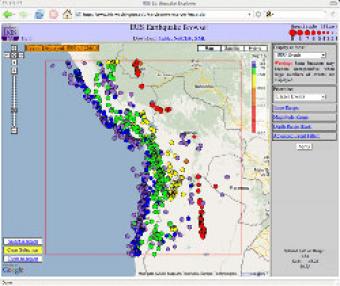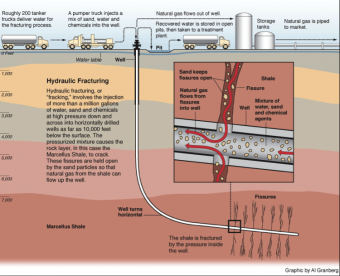Removing hydrocarbons has become an essential activity for humankind. However, their production does not come without the potential to affect the natural and built environments, such as increasing seismic hazards. We will explore the science behind this through a classroom-ready lesson that blends crosscutting concepts, disciplinary core ideas, and practices of science and engineering through the eight steps of the ADI process. Students explore a research question, determine the data necessary to explore the question, and collect the data. Through collaborative analysis and interpretation, their data becomes evidence for claims presented in a scientific poster session. Deliberating over conclusions from across the class, and participation in a class discussion about physical processes of induced seismicity sets up teams to further enhance their own arguments. Students collectively participate in, but individually write, a double-blind peer review.
Students work in small groups to:

The IRIS Earthquake Browser (IEB) is an interactive tool for exploring millions of seismic event epicenters (normally earthquakes) on a map of the world. Selections of up to 5000 events can also be viewed in 3D and freely rotated with the 3D Viewer companion tool.

In this lab, students investigate a hotly debated topic relevant in the political, economic, and scientific arenas. They will examine the processes involved in unconventional oil and gas resource production, including hydraulic fracturing. In particular, they will examine nearby seismic activity and will be asked to determine if correlations can be established between fluid injection related to hydrofracking or wastewater disposal, and earthquake activity.
We encourage the reuse and dissemination of the material on this site as long as attribution is retained. To this end the material on this site, unless otherwise noted, is offered under Creative Commons Attribution (CC BY 4.0) license